Welcome to Our Comapny
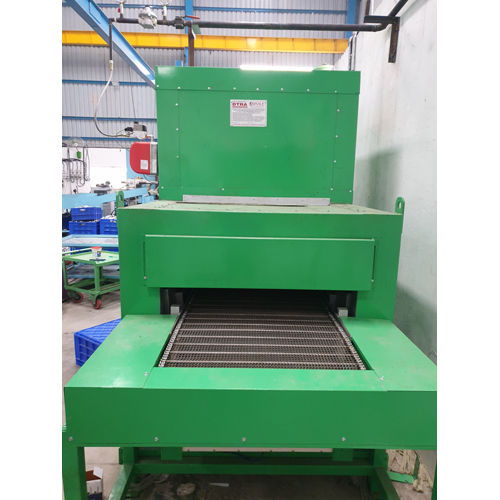
Industrial Belt Conveyor Oven
500000.0 INR/Unit
Product Details:
- Power Source Electric
- Control Mode Manual
- Condition New
- Material Stainless Steel
- Surface Finish Painted
- Click to view more
X
Industrial Belt Conveyor Oven Price And Quantity
- 300000.00 - 1000000.00 INR/Unit
- 500000.0 INR/Unit
- 1 Unit
Industrial Belt Conveyor Oven Product Specifications
- Electric
- New
- Painted
- Manual
- Stainless Steel
Industrial Belt Conveyor Oven Trade Information
- 1 Unit Per Month
- 10 Days
- All India
Product Description
Industrial Batch Oven is a heating chamber used in various industries for a wide range of applications, including drying, curing, baking, or heat-treating processes. It features robust construction with insulated walls, temperature controls, and airflow systems to maintain precise and uniform heat distribution. Ithe offered batch ovens are designed to accommodate large batches or loads of materials or products, making them suitable for industrial-scale production. They offer customizable settings, such as temperature, airflow, and cycle times, to meet specific process requirements. With their reliable performance, efficiency, and versatility, our machine plays a crucial role in enhancing productivity and ensuring consistent quality in many manufacturing processes.
Applications of Industrial Batch Oven:
1. Curing and Polymerization: Batch ovens are used to cure coatings, adhesives, and polymers. This is important in industries such as automotive, aerospace, and electronics manufacturing where proper curing ensures the integrity and durability of the final product.
2. Drying and Moisture Removal: Batch ovens are used to dry materials, products, or components that need to be free of moisture before further processing or packaging. This is common in the food, pharmaceutical, and textile industries.
3. Heat Treatment: In metallurgical industries, batch ovens are used for heat treating processes such as annealing, tempering, and stress relieving of metal parts to achieve specific mechanical properties.
4. Powder Coating: Batch ovens are crucial in the powder coating process, where powdered paint is applied to a substrate and then cured in the oven to create a durable finish.
5. Baking and Cooking: In the food industry, batch ovens are used for baking bread, cookies, pastries, and other baked goods. They provide precise temperature control and uniform baking results.
6. Glass Annealing: In the glass industry, batch ovens are used for annealing glass products to relieve internal stresses and ensure uniform cooling, improving the overall strength and quality of the glass.
7. Electronics Manufacturing: Batch ovens are used for solder reflow processes in electronics manufacturing, where electronic components are attached to a circuit board using molten solder that is then solidified in the oven.
8. Preheating and Conditioning: Some materials or components require preheating or conditioning before they are subjected to further processing. Batch ovens can provide controlled heating to achieve the desired properties.
9. Paint Drying: In automotive and industrial applications, batch ovens are used for drying painted parts or products. The controlled drying process ensures proper adhesion and finish quality.
10. Aging and Testing: Certain materials or products, like rubber and plastics, may undergo aging processes in batch ovens to simulate real-world conditions and assess long-term durability.
11. Chemical Processing: Batch ovens are used in various chemical processes such as crystallization, evaporation, and drying of chemical compounds.
12. Pharmaceuticals: In pharmaceutical manufacturing, batch ovens are used for processes like drying active pharmaceutical ingredients, granulation, and sterilization.
13. Composite Curing: In industries like aerospace and sports equipment, batch ovens are used to cure composite materials like carbon fiber reinforced polymers to create lightweight and strong structures.
14. Ceramics and Pottery: Batch ovens are used for drying and firing ceramics, pottery, and porcelain items, giving them the desired strength and appearance.
Advantages of Industrial Batch Oven:
1. Flexibility: Batch ovens are versatile and can be used for a wide range of processes, making them suitable for different industries and applications. They can accommodate various products and materials, as long as they fit within the ovens dimensions.
2. Customization: Many batch ovens can be customized to meet specific process requirements. This includes adjusting temperature ranges, airflow patterns, and cycle times to ensure optimal results for different materials and products.
3. Precision and Control: Batch ovens offer precise temperature and humidity control, allowing manufacturers to achieve consistent and repeatable results. This is crucial for processes like curing, drying, and heat treatment where maintaining specific conditions is vital for product quality.
4. Energy Efficiency: Advanced batch ovens often incorporate energy-efficient features such as insulation, efficient heating elements, and control systems that optimize energy consumption. This can lead to cost savings in the long run.
5. Uniform Heating: Well-designed batch ovens provide even heating throughout the chamber, ensuring uniform processing of materials or products. This eliminates the risk of uneven results that can occur in less controlled heating environments.
6. Quality Assurance: Batch ovens contribute to improved product quality by providing controlled conditions for various processes. This is especially important in industries where consistency and quality are paramount.
7. Batch Processing: The batch processing nature of these ovens allows for better control over smaller batches of materials or products. This can be advantageous when dealing with multiple product types, shorter production runs, or when rapid changeovers are necessary.
8. Reduced Labor Intensity: Once set up and programmed, batch ovens typically require minimal operator intervention. This frees up labor resources for other tasks, contributing to operational efficiency.
9. Process Monitoring and Data Logging: Many modern batch ovens come equipped with advanced control systems that allow operators to monitor and log process parameters. This data can be invaluable for process optimization, quality control, and troubleshooting.
10. Space Efficiency: Batch ovens come in various sizes, allowing manufacturers to choose a unit that fits within their available space. This can be particularly useful for facilities with limited floor space.
11. Compliance with Regulations: In industries like food, pharmaceuticals, and electronics, batch ovens help manufacturers meet regulatory standards by providing controlled environments that ensure product safety and quality.
12. Shorter Cycle Times: Batch ovens can often achieve faster cycle times compared to other heating methods. This can increase production throughput and overall efficiency.
13. Ease of Maintenance: Many batch ovens are designed for easy maintenance, with accessible components and user-friendly interfaces. This helps minimize downtime for servicing and repairs.
14. Cost-Effectiveness: Batch ovens can offer cost savings by reducing scrap rates, improving process efficiency, and optimizing energy consumption.
15. Proven Technology: Batch ovens have been used across industries for decades, which means there is a wealth of knowledge and experience available for optimizing processes and troubleshooting issues.
FAQs ofIndustrial Batch Oven:
Q. What is an industrial batch oven?
Ans: An industrial batch oven is a specialized heating device used in manufacturing and processing industries to carry out various thermal processes, such as drying, curing, baking, and heat treatment, on a batch-by-batch basis.
Q. How does a batch oven work?
Ans: Batch ovens work by circulating heated air or other controlled gases within an insulated chamber. This controlled environment allows for precise temperature and humidity control, ensuring consistent and uniform processing of materials or products.
Q. What industries use industrial batch ovens?
Ans: Industrial batch ovens are used in a wide range of industries, including automotive, aerospace, electronics, food, pharmaceuticals, chemicals, ceramics, textiles, and more. They are essential for processes that require controlled heating, drying, or curing.
Q. What are the advantages of using batch ovens?
Ans: Advantages of using batch ovens include flexibility, customization, precise control, energy efficiency, uniform heating, improved product quality, reduced labor intensity, data logging, compliance with regulations, and cost-effectiveness.
Q. What types of processes can be carried out in batch ovens?
Ans: Batch ovens can be used for processes such as curing coatings and adhesives, drying materials, heat treating metals, baking food products, polymerization, glass annealing, electronics solder reflow, and more.
Q. What factors should be considered when selecting a batch oven?
Ans: Factors to consider include the desired temperature range, process requirements, chamber size, airflow patterns, energy efficiency features, control systems, and any specific customization needs for your application.
Q. How are batch ovens controlled and monitored?
Ans: Modern batch ovens are often equipped with advanced control systems that allow operators to set and monitor temperature, humidity, and other process parameters. Some systems also offer data logging and remote monitoring capabilities.
Q. What is the difference between batch ovens and continuous ovens?
Ans: Batch ovens process materials in discrete batches, whereas continuous ovens operate with a continuous flow of material through the oven. Batch ovens are ideal for smaller production runs and varied product types, while continuous ovens are better suited for high-volume, consistent production.
Q. Can batch ovens be used for heat-sensitive materials?
Ans: Yes, batch ovens can be equipped with features like programmable ramps, controlled cooling, and precise temperature profiles, making them suitable for heat-sensitive materials that require gradual temperature changes.
Q. Are there safety measures for using batch ovens?
Ans: Yes, safety measures should include proper ventilation, adherence to temperature limits, installation of safety interlocks, and compliance with industry-specific safety standards to ensure operator and product safety.
Q. Can batch ovens be retrofitted for existing processes?
Ans: Yes, many batch ovens can be customized or retrofitted to accommodate specific process requirements or fit into existing production lines. Consult with manufacturers or experts to determine the feasibility of retrofitting.
Q. What maintenance is required for batch ovens?
Ans: Regular maintenance includes cleaning the interior, checking and calibrating temperature and control systems, and inspecting heating elements and fans. Scheduled maintenance helps prevent breakdowns and ensures optimal performance.
Q. Can batch ovens be integrated into automated production lines?
Ans: Yes, batch ovens can be integrated into automated production lines by connecting them to programmable logic controllers (PLCs) and other automation systems. This allows for seamless process control and data exchange.
Q. Are there environmental considerations for using batch ovens?
Ans: Yes, energy consumption and emissions are important environmental considerations. Choosing energy-efficient models and optimizing process parameters can help minimize the environmental impact of batch oven operations.
Q. Where can I find reliable suppliers of industrial batch ovens?
Ans: Reliable suppliers can be found through industrial equipment manufacturers, trade shows, online marketplaces, and industry associations. Its important to research and select reputable suppliers with a track record of delivering quality equipment.
FAQs of Industrial Belt Conveyor Oven:
Q: What is the surface finish of the Industrial Belt Conveyor Oven?
A: The surface finish of the Industrial Belt Conveyor Oven is painted.Q: What is the condition of the Industrial Belt Conveyor Oven?
A: The Industrial Belt Conveyor Oven is in a new condition.Q: What is the control mode of the Industrial Belt Conveyor Oven?
A: The control mode of the Industrial Belt Conveyor Oven is manual.Q: What is the power source of the Industrial Belt Conveyor Oven?
A: The power source of the Industrial Belt Conveyor Oven is electric.Q: What is the material used in the Industrial Belt Conveyor Oven?
A: The material used in the Industrial Belt Conveyor Oven is stainless steel.Tell us about your requirement

Price:
Quantity
Select Unit
- 50
- 100
- 200
- 250
- 500
- 1000+
Additional detail
Mobile number
Email


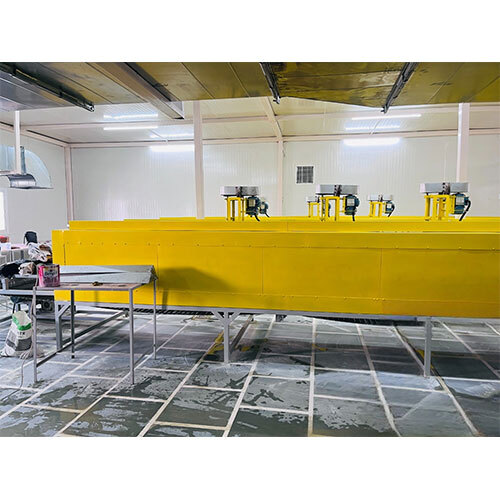
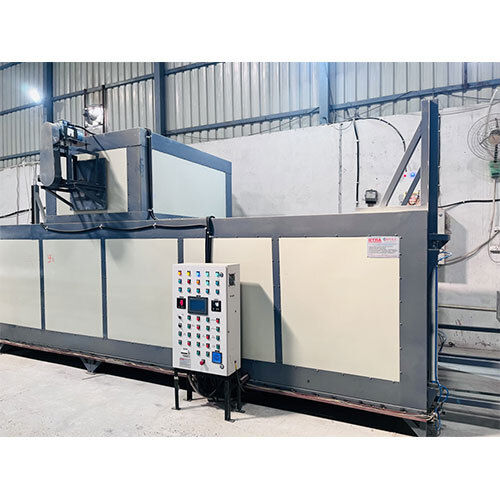
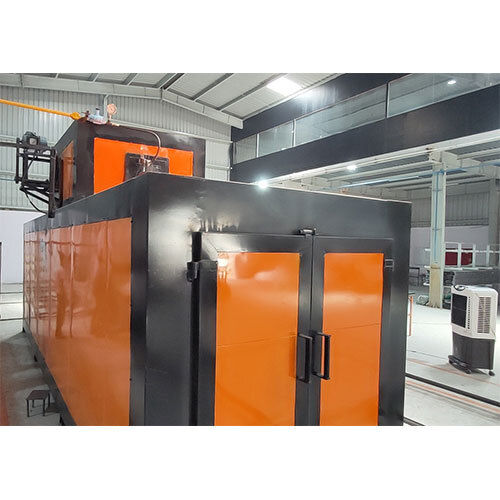
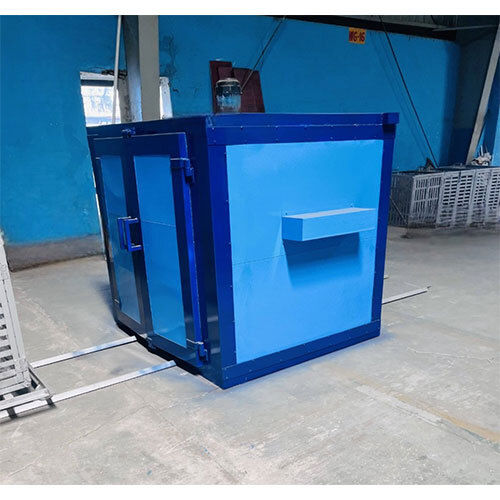


 English
English Spanish
Spanish French
French German
German Italian
Italian Chinese (Simplified)
Chinese (Simplified) Japanese
Japanese Korean
Korean Arabic
Arabic Portuguese
Portuguese